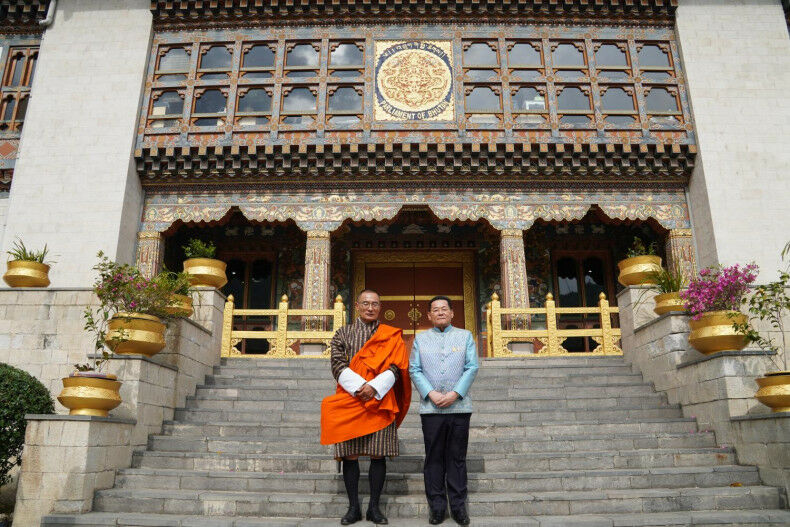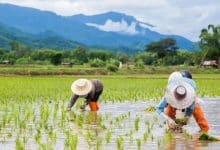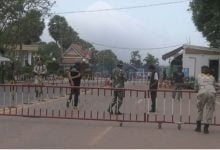Thailand and Bhutan start free trade talks to boost trade by 2025

Thailand and Bhutan yesterday officially began negotiations for a free trade agreement (FTA), aiming to finalise the deal by next year.
Deputy Commerce Minister Napintorn Srisunpang confirmed that Bhutanese Prime Minister Tshering Tobgay has signed the terms of reference to initiate the FTA discussions. Both nations see this agreement as a crucial step to enhance bilateral trade and investment, dismantle trade barriers, and improve market access, especially for agricultural products, to reach US$120 million (approximately 4.38 billion baht) by 2025.
In addition to the FTA, the countries discussed Bhutan’s ambitious Mindfulness City project near Gelephu, close to the Indian border. This city is envisioned as an economic hub and a tourist gateway to Bhutan. The plan includes constructing a metropolis with low to mid-rise buildings around a series of inhabitable bridges.
Each bridge will feature essential elements of the city, including a new international airport, a university, a hydroponic greenhouse, a cultural centre, a spiritual centre, a market for local goods, and a hydroelectric dam. This development is expected to be a significant economic corridor linking South Asia with Southeast Asia through India’s northeastern region, offering potential partnership opportunities for the Thai business sector.
Napintorn stated that the Thai side has requested detailed information on incentives and regulations related to business operations and investment in such projects.
Thailand and Bhutan share a strong bond rooted in their Buddhist spiritual heritage and monarchical traditions, fostering robust relations across various levels, including economic cooperation in agriculture, tourism, investment, and handicrafts. Many Bhutanese tourists visit Thailand for health and wellness services, and Bhutan has shown interest in participating in a tourism festival in Thailand to promote its culture and tourism.
Bhutan’s economy
Thailand commended Bhutan’s economic progress, noting its exit from the list of least developed countries in December last year. Thailand also expressed support for King Jigme Khesar Namgyel Wangchuck’s vision to transform Bhutan into a South Asian economic hub, aiding its goal of becoming a high-income country by 2034.
Chotima Iemsawasdikul, Director-General of the Trade Negotiations Department, reported that the initial round of negotiations on May 17 in Thimphu, Bhutan, established the structure and outline of the FTA, identified working groups and focal points, and agreed on a work plan for the negotiations.
The next round of negotiations will take place in Thailand in August, with the agreement expected to be finalised by November 2025. Once implemented, the FTA will eliminate tariffs and non-tariff barriers to boost the competitiveness of export products such as dry fruits, garments, rubber and plastic products, and electronic appliances.
Trade between Thailand and Bhutan has shown consistent growth, with total trade in goods reaching US$18.7 million in 2023. In the first quarter of 2024, bilateral trade totalled US$3.06 million, with exports valued at US$3.03 million and imports at US$30,000, reported Bangkok Post.
Key Thai exports to Bhutan include computers and computer parts, textiles, wheat, electrical appliances, and ready-to-eat food. Bhutan’s primary exports to Thailand comprise aviation equipment and components, metal products, and fine arts.
Latest Thailand News
Follow The Thaiger on Google News:


























